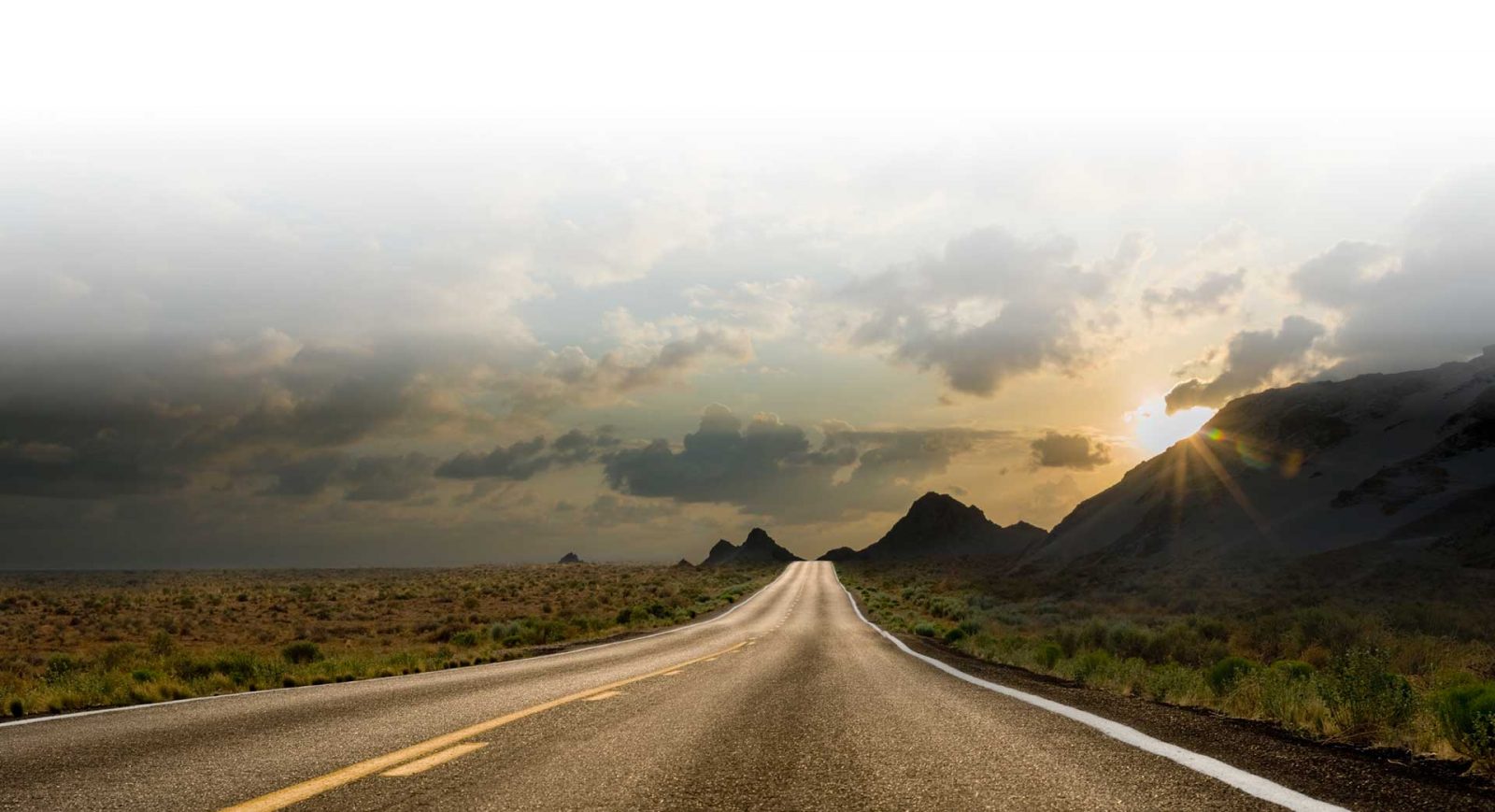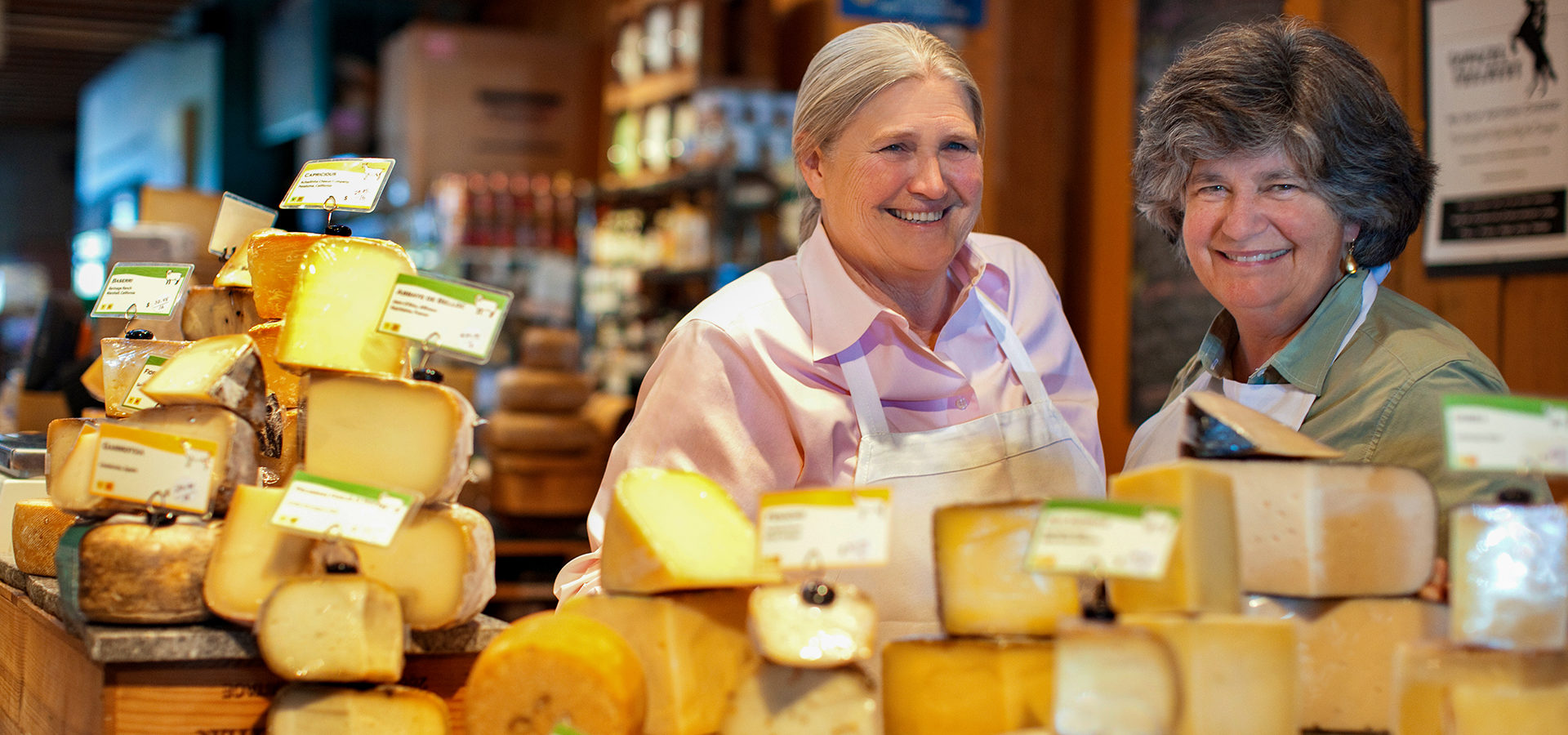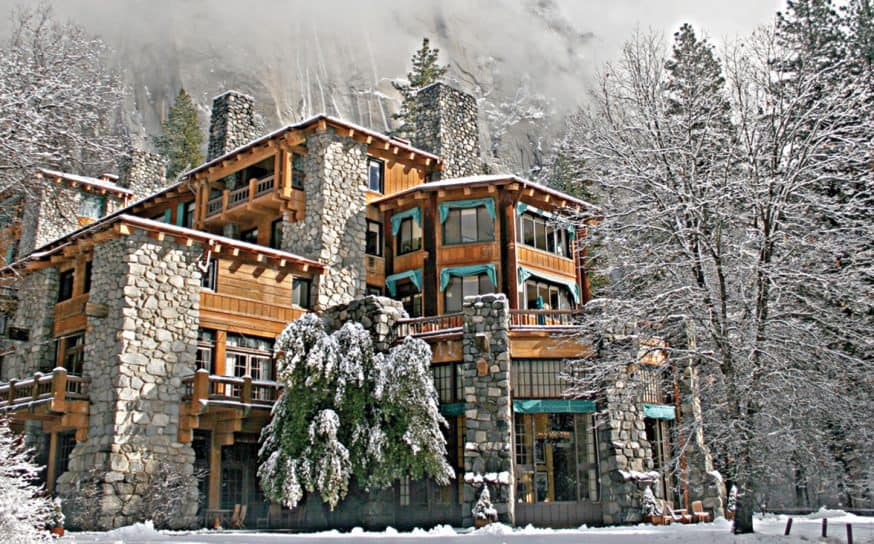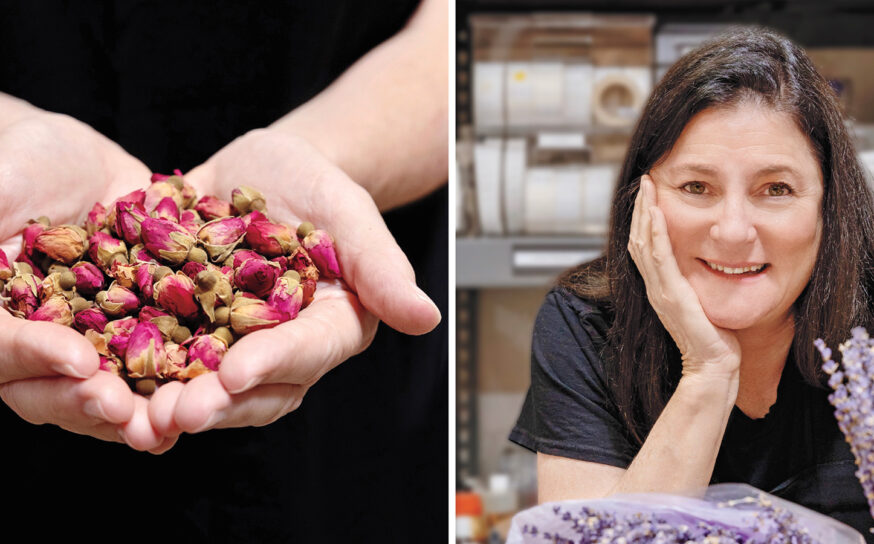How Cowgirl Creamery Ushered in an Artisan Cheese-making Revolution Both in California and Across the Country
Say cheese.
-
CategoryArtisans, Chef's Table, Farm + Table, Makers + Entrepreneurs, Small Businesses
-
Written byShaun Tolson
Around the same time that a youthful Leonardo DiCaprio was charming millions of theatre-goers, declaring himself “king of the world!” in the 1997 film Titanic, Sue Conley and Peggy Smith were taking their first steps in a joint career that would span more than 20 years and ultimately position the former chefs as queens of America’s artisan cheese-making. Theirs is a story rooted in a shared enthusiasm for fresh, organic food—a passion that ultimately sparked the creation of Cowgirl Creamery.
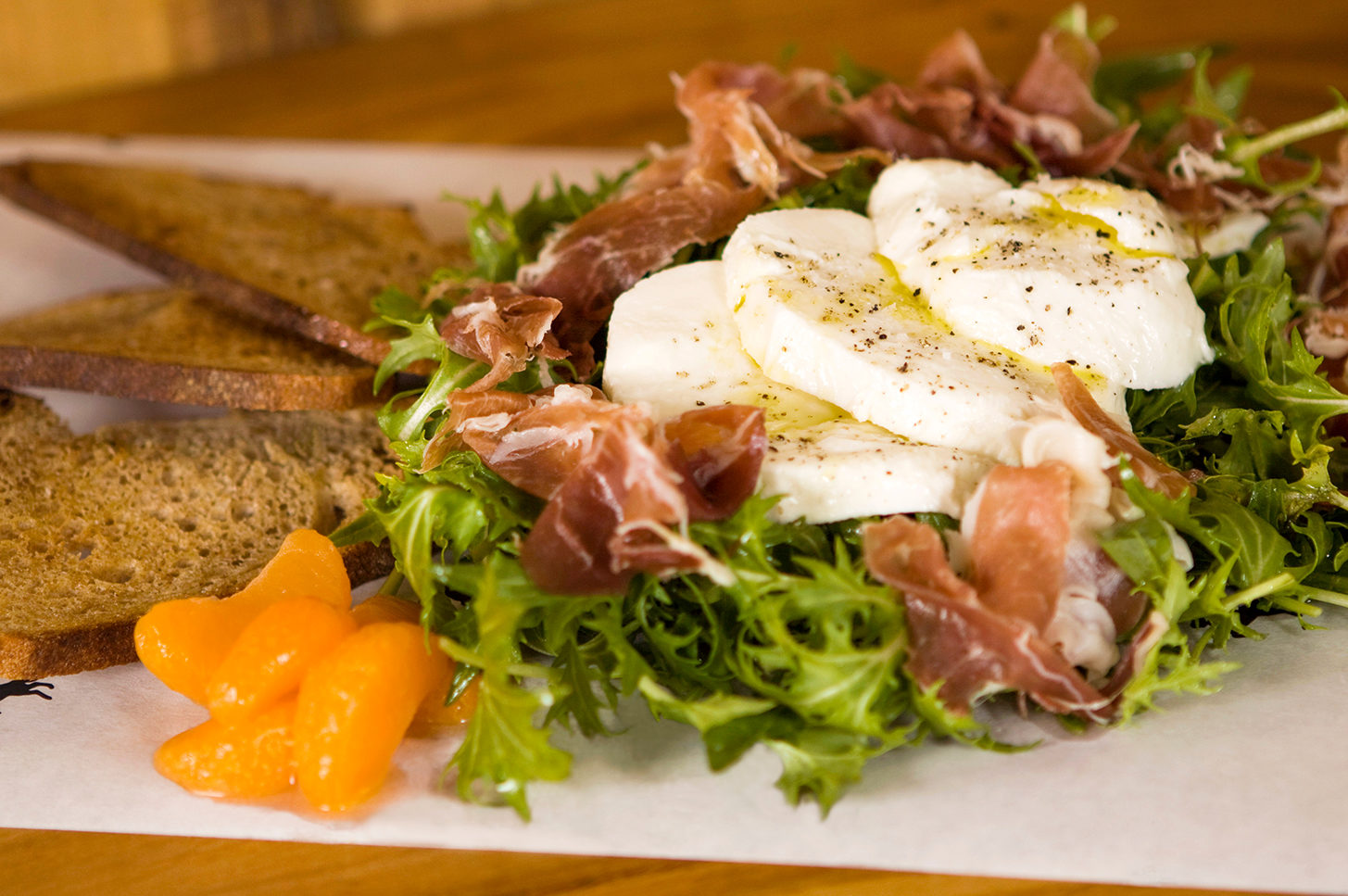
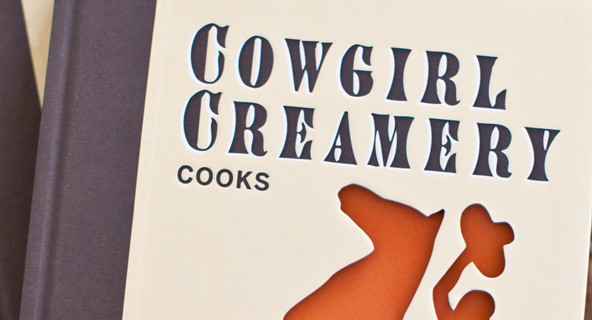
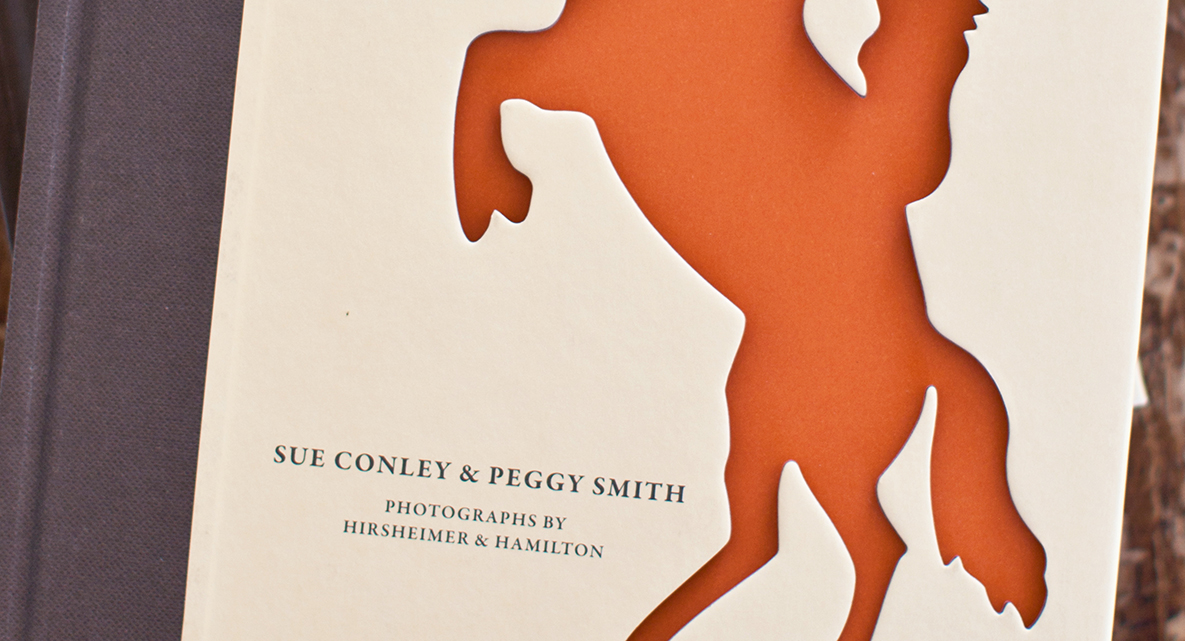
Around the same time that a youthful Leonardo DiCaprio was charming millions of theatre-goers, declaring himself “king of the world!” in the 1997 film Titanic, Sue Conley and Peggy Smith were taking their first steps in a joint career that would span more than 20 years and ultimately position the former chefs as queens of America’s artisan cheese-making. Theirs is a story rooted in a shared enthusiasm for fresh, organic food—a passion that ultimately sparked the creation of Cowgirl Creamery.
When Sue and Peggy arrived in San Francisco as recent graduates of an East Coast college in 1976, they were effectively wooed by the Bay Area’s burgeoning food scene. It didn’t hurt that the region was also a focal point of a growing movement that advocated the benefits of natural foods.
After almost two decades spent pursuing traditional culinary work at the restaurant level, the two college friends were on the move again—not across the country, as was the case during the mid-1970s, but an hour’s drive north of San Francisco to bucolic Point Reyes Station, where they helped develop a sustainable milkshed that could support and foster the creation of organic dairies. (At that time, not a single organic dairy farm existed west of the Mississippi River.)
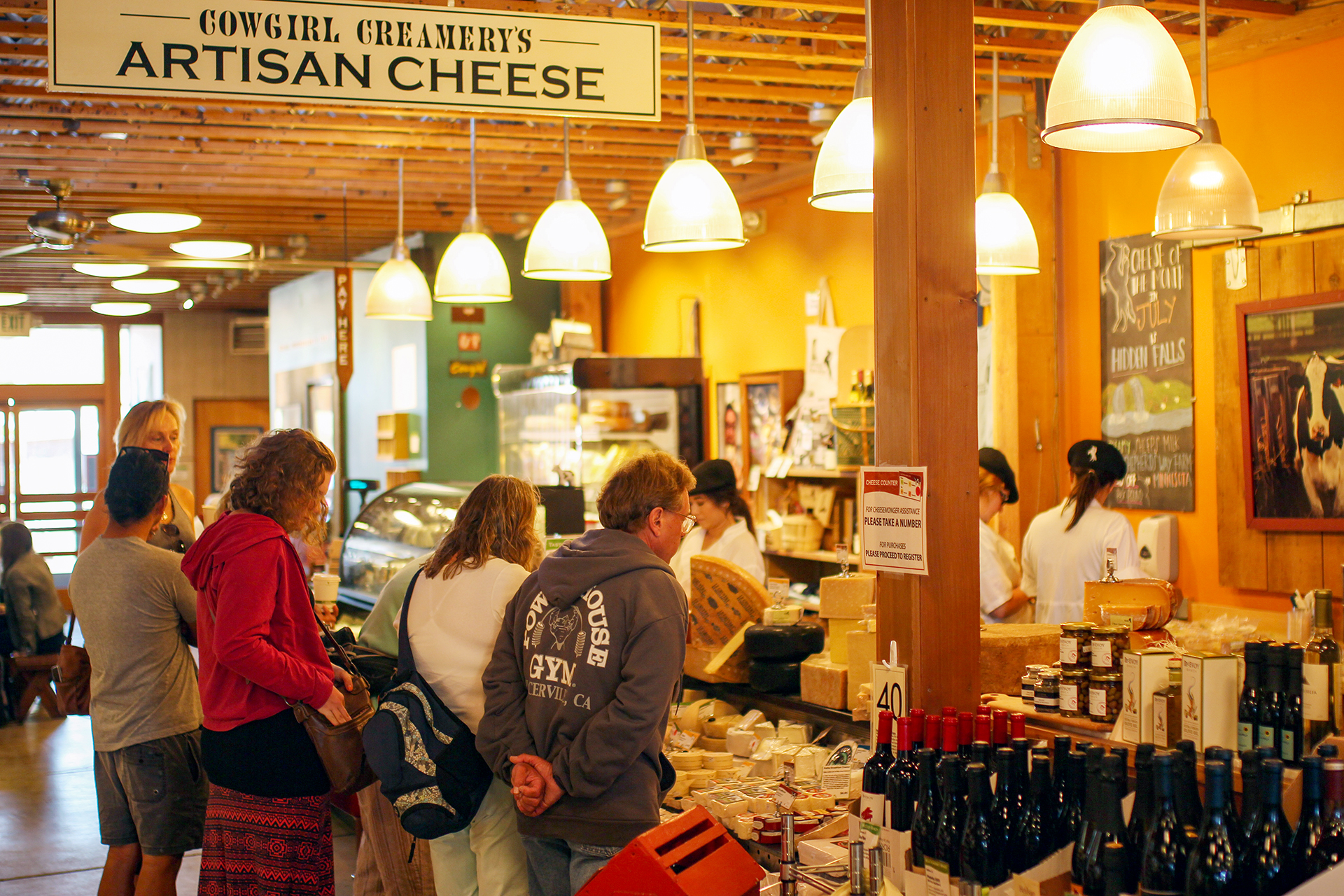
Early on, Sue and Peggy worked as distributors, bringing frothy bottles of milk from West Marin County to Greater San Francisco. But it wasn’t long before the duo seized the opportunity to do more with that milk. With the dream of starting an artisan cheese business, Sue and Peggy purchased a downtrodden barn near the center of Point Reyes Station. After almost three years spent renovating and restoring the property (at the same time securing the necessary permits), the aspiring cheesemakers christened Cowgirl Creamery—the first new cheese business to open in Marin County in several decades.
Over the years that followed, the creamery successfully pioneered the artisan cheese movement—not just in the Greater Bay Area and throughout Marin County but across the entire state. In fact, the California Cheese Trail offers road trips and suggested driving routes to almost 80 Golden State cheesemakers—from Silverdale Cheese in El Centro, 8 miles north of Mexico, to Rumiano Cheese Company in Crescent City, less than 20 miles south of the Oregon border. It’s not hyperbole to suggest that none of those businesses—nor the cheese trail itself—would exist without Cowgirl Creamery.
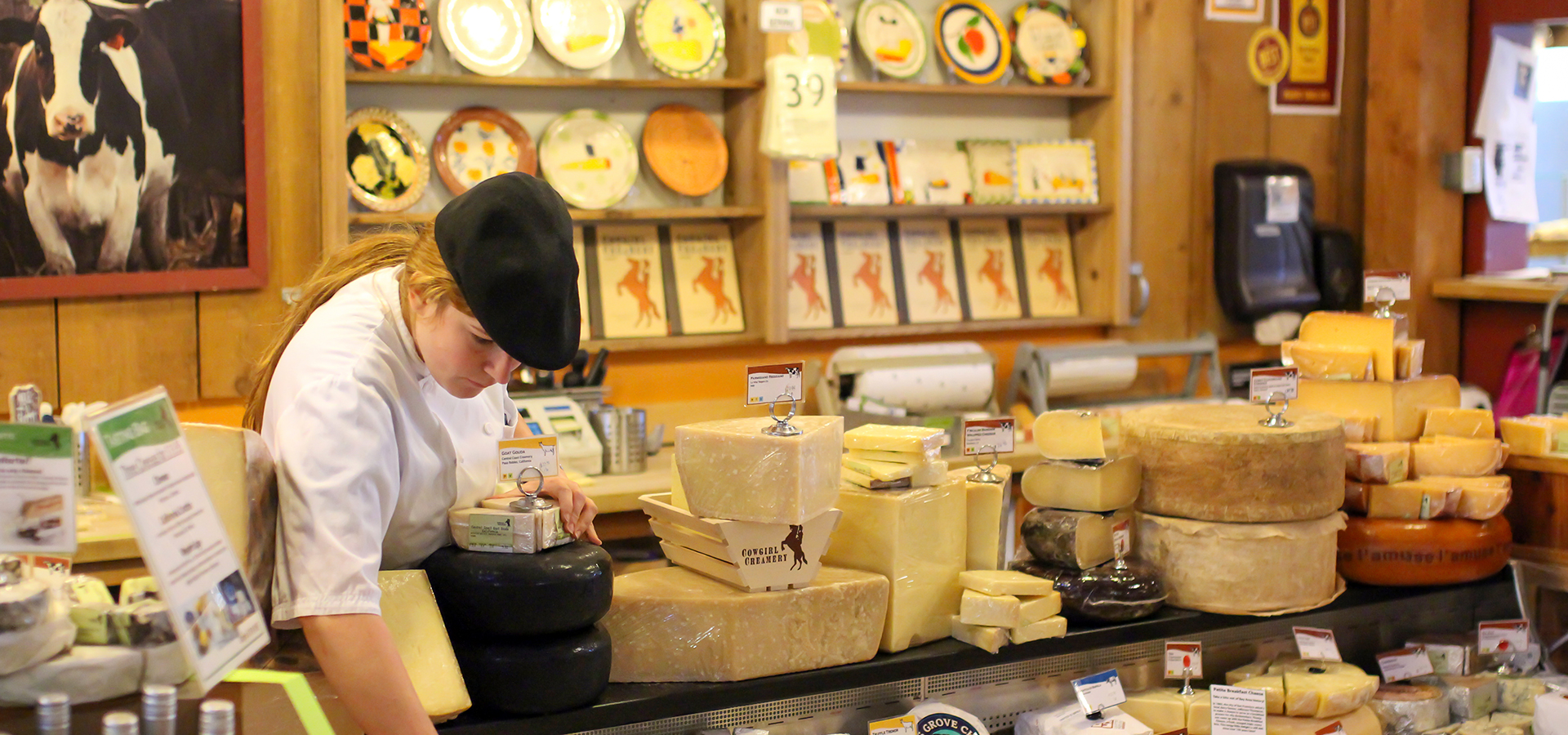
Sue and Peggy were both inducted into the Guilde Internationale des Fromagers, a membership organization that honors the world’s most passionate and dedicated cheese specialists. Their induction in 2010 was a deserved recognition—not only for their roles shepherding the artisan cheese movement in California (and the rest of the United States) but also for the award-winning cheeses that they created. Those dairy products boldly and authentically reflect the ethos of Northern California and the terroir of the creamery’s local environment.
On the topic of those influential cheeses, it all began in 2000 when Cowgirl Creamery debuted Mt Tam—a triple cream cheese that epitomized America’s melting-pot ideals. Named after Mount Tamalpais, a mountain peak that many consider a symbol of Marin County, the aged cheese is produced through the marriage of French and Dutch cheese-making techniques. At its core the cheese is densely fudge-like, and it delivers notes of crème fraîche and cultured butter as well as hints of salted butter, fresh pasture and a white mushroom-like umami.

“It looks like a brie or camembert,” says Amanda Parker, Cowgirl’s deputy managing director. “But the interior is slightly different—it’s creamy right beneath the rind and has a denser center. It’s a pretty approachable cheese.”
Perhaps the most intriguing cheese within the company’s core lineup (at least thus far) is one that best reflects the creamery’s distinctive locale. It’s also a cheese that was born, quite literally, by accident.
Shortly after Sue and Peggy unveiled Mt Tam, they were aging a new batch of the cheese in the same vicinity as some natural rind cheeses they had imported from Great Britain for sale in their cheese shop. When Sue discovered that the cheese mites on the natural rind cheeses had attached themselves onto the still-developing rounds of Mt Tam, she tried to save them by reinoculating those rounds with a special solution. Then she stored them in plastic containers in the creamery’s walk-in refrigerator.
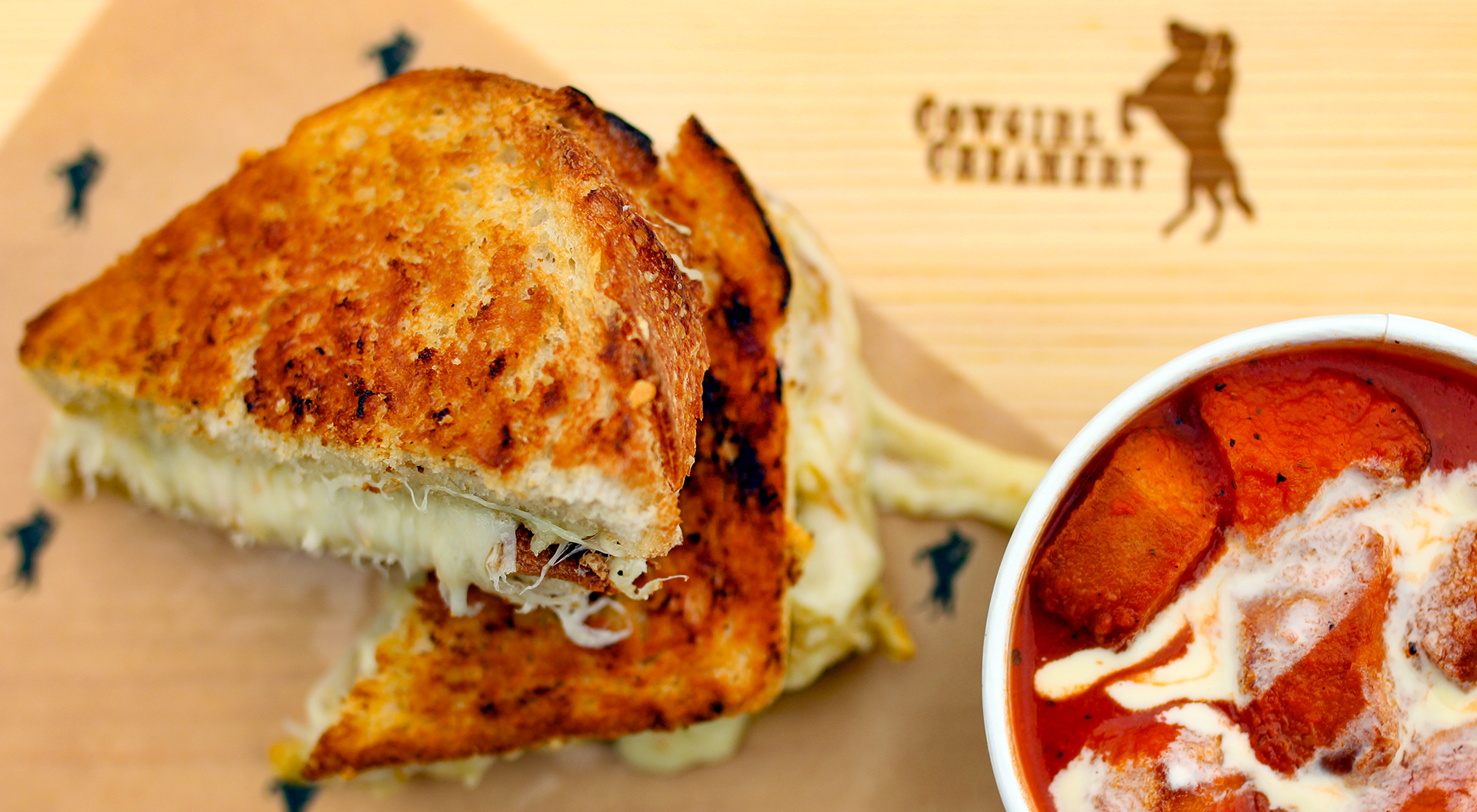
Two weeks later, those rounds had developed a red tint and an unmistakable pungency. Yet when Sue and Peggy sampled them, they discovered that the cheese was delicious. Since then the creamery has reproduced that cheese, now called Red Hawk, by washing the rind with a brine that attracts indigenous yeasts and bacteria that thrive in Point Reyes’ cool, damp air.
“We could make it elsewhere,” Amanda says, “but it wouldn’t be the same cheese. It’s so reflective of the very specific coastal climate of Tomales Bay.”
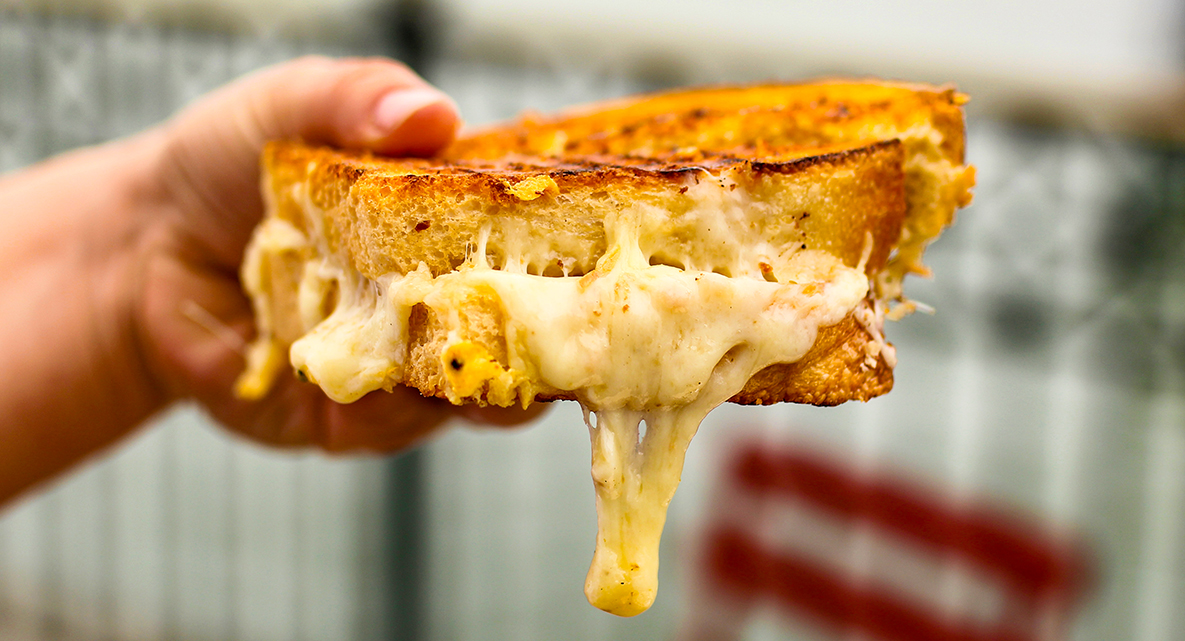
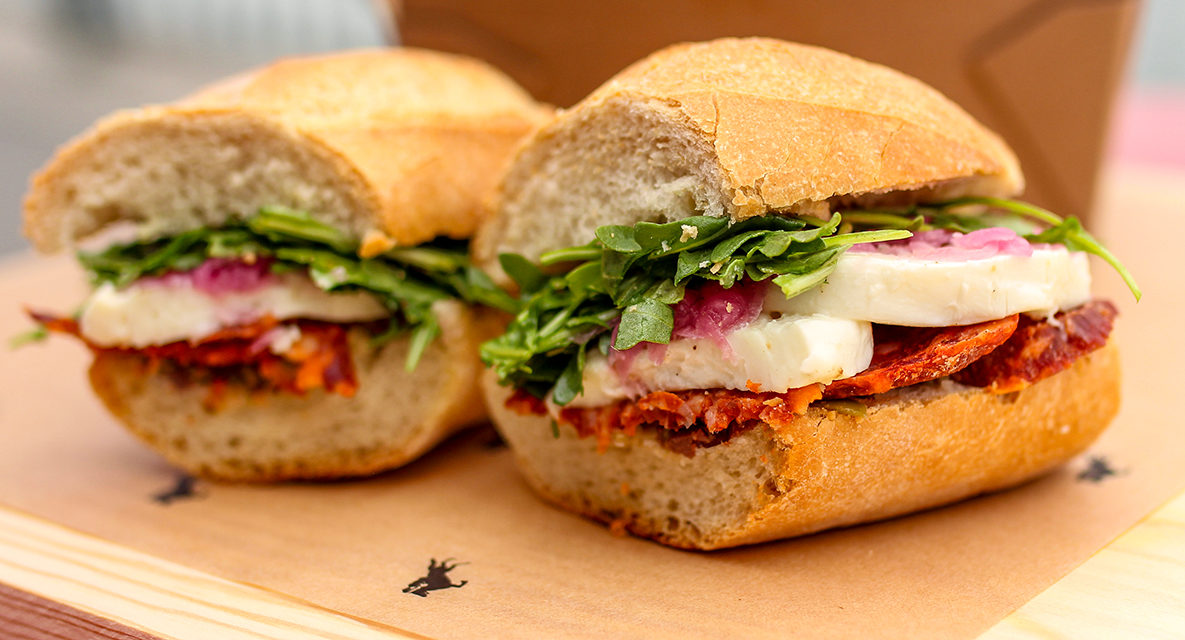

Earlier this year, Sue and Peggy announced their joint retirement. “Creating and building Cowgirl Creamery has been the greatest adventure in our lives,” they wrote in a letter that circulated in January. However, the duo waited to step away from that adventurous company until they had a strong team in place to carry the brand into the future. Incidentally, that team includes a half-dozen women in executive and managerial roles, all led by Amanda. (After all, it wouldn’t be Cowgirl Creamery without a group of empowered, informed and savvy women leading the business.)
Sue and Peggy may no longer be at the helm, but their ideals, their vision and their entrepreneurial exuberance remain very much intact within the company’s next generation of leaders. “They were pioneers. Trailblazers. They had this idea that was so new at the time in so many ways,” Amanda says of Cowgirl’s founders. “They were able to take this tiny hay barn and create this entire ecosystem of businesses over the next 25 years. It’s the spirit of true entrepreneurship that I’ve always admired. We like to call it the Cowgirl spirit.”
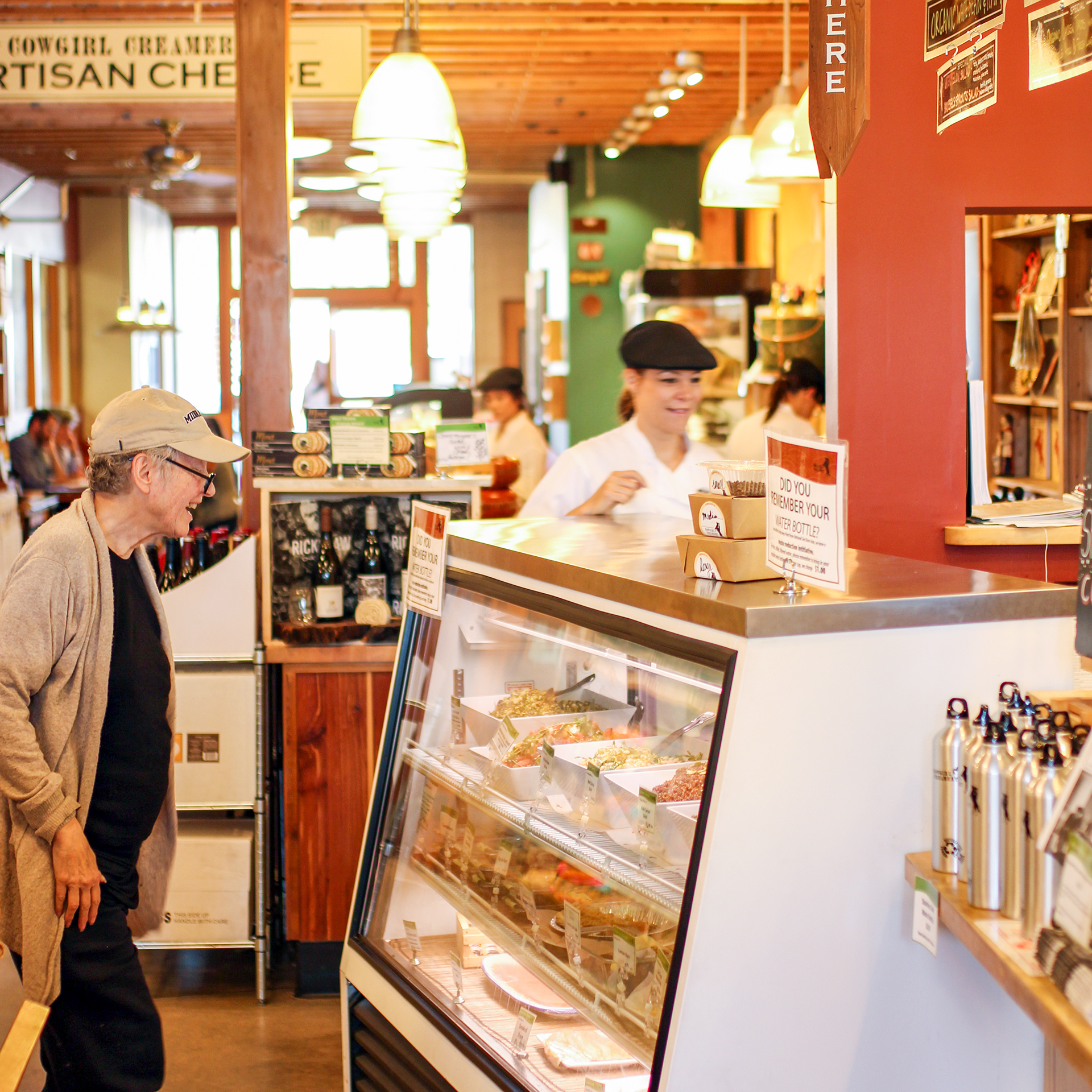
As it pertains to the future, that Cowgirl spirit is focused on widespread growth. In 2017—one year after Cowgirl was acquired by Emmi, a Swiss dairy company that values craftsmanship, environmental stewardship and preservation of local character—the brand opened a second, state-of-the-art creamery in Petaluma, about 16 miles (as the crow flies) northeast of its original location in Point Reyes Station. With two production facilities up and running—and with no concerns about exceeding its available organic milk supply—Cowgirl Creamery is well positioned to ramp up its production even further. With it, more examples of the brand’s unique cheeses are reaching even more locales.
“There’s been so much interest and demand for our products, and for many years we were constrained by our creamery spaces and couldn’t fulfill that demand,” Amanda says, explaining that their flagship products were widely available—even across the country—but their seasonal offerings and cheeses produced in lesser quantities never ventured far beyond the Bay Area. “Our cheeses have always been accessible to the West Coast, and we’ve always had national distribution with Whole Foods. But beyond that, we were somewhat focused on this most immediate Northern California region. Even in the South Bay region, we haven’t been able to get as much cheese there to those consumers as we might like.”
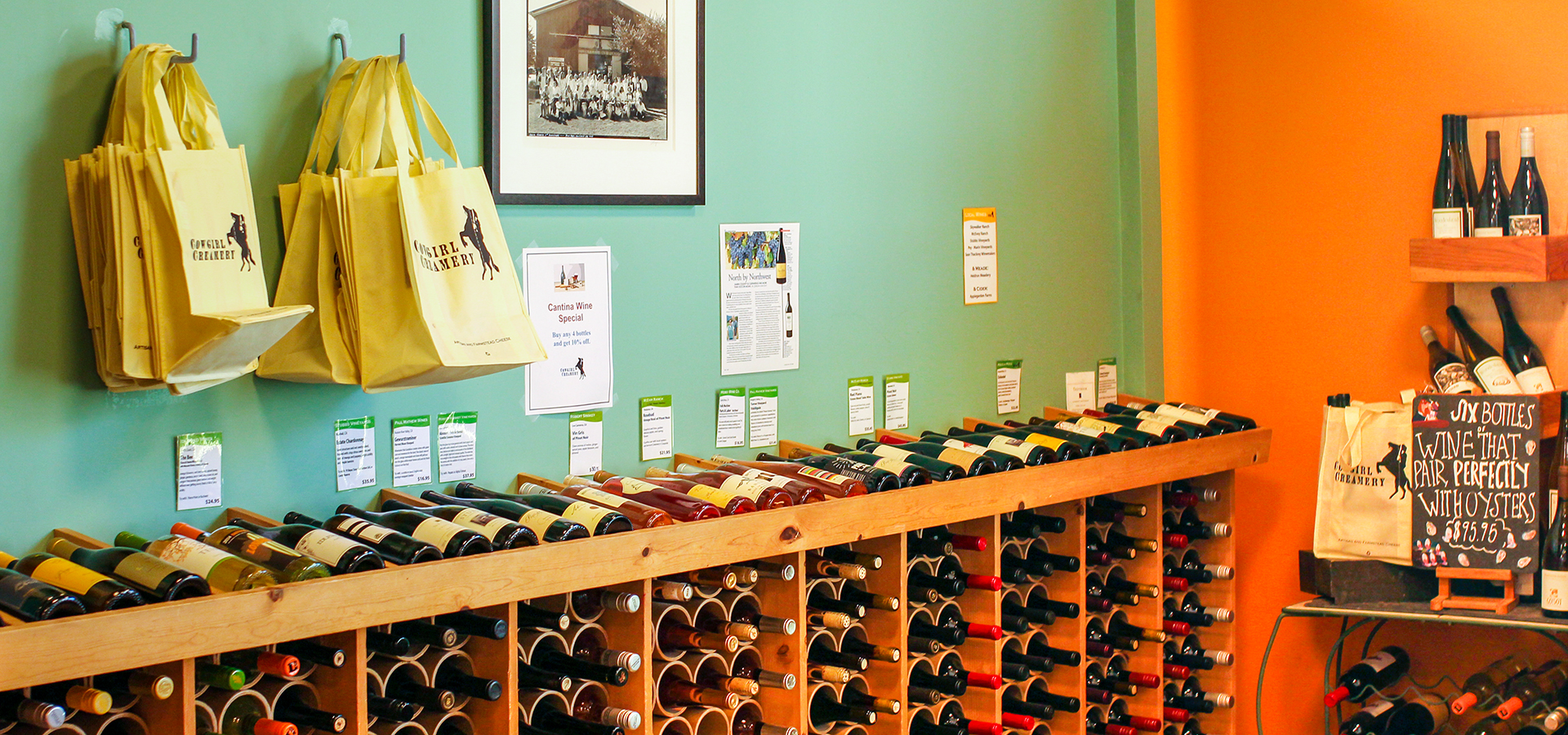
Those difficulties may soon be a thing of the past. Additionally, Cowgirl Creamery may soon introduce entirely new, inventive cheeses. After all, as Amanda acknowledges, the past 15 years have produced widespread interest and an exponentially increasing appreciation and demand for cheeses that once would have been considered rare or niche. That’s opened the door for even greater creativity.
“We’re continuing to be inspired by the raw ingredients that we’re surrounded by,” she says, “and there’s more room for experimentation, especially as it pertains to the inspiration that we find from the special microclimate and the terroir of our region here in the North Bay. We plan to keep forging ahead to bring a bit more deliciousness to people’s lives on a regular basis.”
Here Are Two Delicious Reasons to Visit Yosemite This Season
This is not your average trail mix.
Go Sideways at the First-Ever Taste of the Santa Ynez Valley Food, Beer and Wine Festival
The October event will showcase the best of the Central Coast wine region.
Get the Latest Stories
